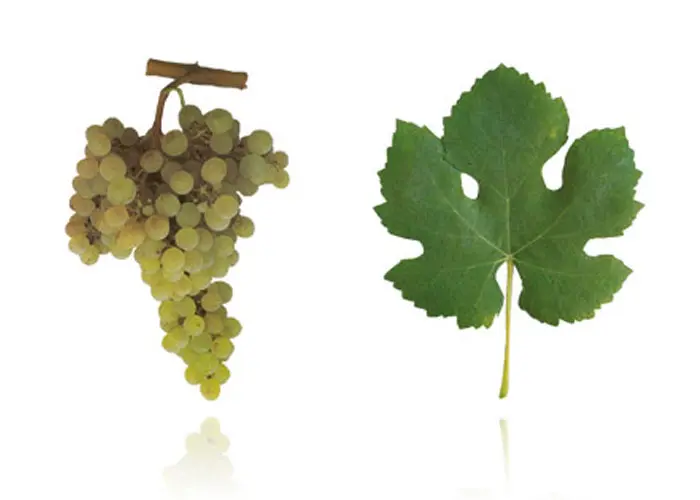Arinto
Arinto is a particularly versatile white Portuguese grape variety found in most of the country’s wine regions. In the Vinhos Verdes region, it is known as Pedernã.
This grape produces vibrant wines with lively acidity, refreshing character, and strong minerality, along with excellent aging potential. Its hallmark is precisely this firm acidity, which is why it is often considered an “enhancer” grape in many Portuguese regions, bringing freshness and structure to blends. While Bucelas, north of Lisbon, is where Arinto reaches its peak, it also plays a vital role in Alentejo and Ribatejo, compensating for the lack of acidity due to the warm climate.
Arinto forms medium-sized, compact clusters with small berries. It is a relatively discreet variety without particularly exuberant aromas, favoring notes of green apple, lime, lemon, and a marked mineral touch. It is frequently used in blends and sparkling wine production, especially in Bucelas, where it is the principal grape.
Additional information:
Arinto is sometimes called the “Portuguese Riesling” because of its high acidity and aging potential.
With age, it develops a lemony and resinous bouquet, gaining roundness and complexity over time.
Though less productive than other varieties, it is highly valued for its ability to produce characterful wines even in warm climates, setting it apart in Portugal.
Beyond Bucelas, it is also found in the Douro, Dão, Alentejo, Azores, and Madeira, under various synonyms such as Arintho, Assario Branco, or Boal.
In summary, Arinto is a key grape of Portugal’s wine heritage, prized for its freshness, minerality, and ability to produce long-lived wines, both still and sparkling.

Associated aromas


Lemon
Green Apple

Lime